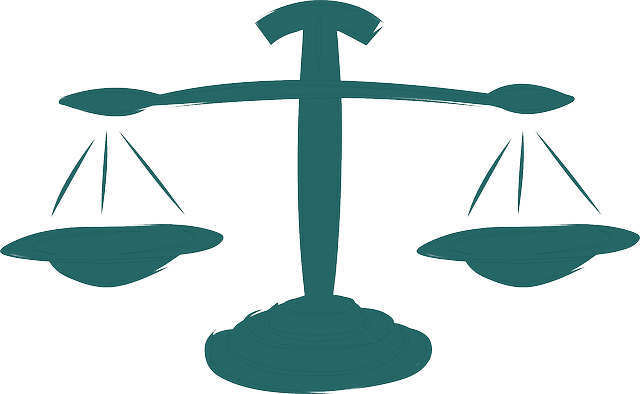Healthcare compliance experts play a crucial role in navigating complex legal landscapes, ensuring adherence to HIPAA and federal/state regulations. They utilize their deep knowledge to interpret rules into actionable strategies, monitor systems, identify risks, and maintain data integrity. Their work influences medical malpractice jury trials, protecting patients' rights, institution reputations, and mitigating legal liabilities. In criminal cases involving medical practices, these experts leverage evidence types like patient charts, EHRs, expert testimonies, and regulatory reports to construct robust defenses, aiming for favorable outcomes. Effective healthcare compliance management involves strategic policy development and robust documentation systems to demonstrate adherence to laws and protect against legal issues or investigations.
Healthcare Compliance Experts play a vital role in ensuring medical institutions adhere to legal and ethical standards. This article explores their crucial responsibilities in maintaining integrity within the healthcare sector. We delve into the various types of evidence they employ during criminal investigations, highlighting the significance of documentation, data analysis, and witness testimonies. Additionally, we provide strategic best practices for effective healthcare compliance management, emphasizing proactive risk assessment and continuous education to navigate the complex landscape of regulations.
- Understanding Healthcare Compliance Experts: Their Role and Responsibilities
- The Types of Evidence Used by Healthcare Compliance Experts in Criminal Cases
- Strategies and Best Practices for Effective Healthcare Compliance Management
Understanding Healthcare Compliance Experts: Their Role and Responsibilities

Healthcare Compliance experts play a pivotal role in ensuring that healthcare institutions adhere to a complex web of laws, regulations, and ethical guidelines. Their primary responsibility is to navigate the intricate landscape of healthcare policy, which involves meticulous record-keeping, risk assessment, and implementing internal controls. These experts are equipped with a profound understanding of various legal frameworks, including federal and state regulations, HIPAA (Health Insurance Portability and Accountability Act), and industry-specific standards.
Their expertise extends beyond mere compliance; they are adept at interpreting complex rules and translating them into actionable strategies. They employ diverse tools and techniques to monitor and audit systems, identify potential risks, and ensure data integrity. By fostering a culture of compliance within organizations, these professionals safeguard patients’ rights, maintain the institution’s reputation, and mitigate legal liabilities. This meticulous approach is especially crucial in healthcare, where evidence-based practices and documentation are paramount, even touching upon aspects like those types of evidence used in criminal prosecution. Moreover, their work influences outcomes in jury trials related to medical malpractice, ensuring fairness and accountability within the healthcare sector and fostering trust among philanthropic and political communities.
The Types of Evidence Used by Healthcare Compliance Experts in Criminal Cases

Healthcare compliance experts play a pivotal role in navigating complex legal landscapes, particularly in criminal cases involving medical practices. When presenting their case, these professionals leverage diverse evidence types to support their arguments and ensure justice is served. Beyond financial records and documentation, they employ a comprehensive array of proof including patient charts, electronic health records (EHRs), expert witness testimonies, and regulatory agency reports. This multifaceted approach allows them to construct robust defenses for both corporate and individual clients, aiming for favorable outcomes such as complete dismissal of all charges or winning challenging defense verdicts.
The evidence used in criminal prosecution for healthcare-related crimes demands meticulous scrutiny and interpretation. Compliance experts utilize their deep knowledge of medical regulations and industry standards to analyze and contextualize the collected data. By presenting a clear and compelling narrative, they help juries or judges understand complex medical issues and make informed decisions. This strategic utilization of evidence is instrumental in shaping the legal strategies for clients facing criminal charges, ultimately contributing to successful defense outcomes.
Strategies and Best Practices for Effective Healthcare Compliance Management

Healthcare compliance management is a complex yet essential aspect of running a medical facility. To ensure effective adherence to regulations, experts recommend a multi-faceted approach. Firstly, establishing clear policies and procedures tailored to specific healthcare laws is crucial. These guidelines should be regularly reviewed and updated to accommodate changes in legislation, technology, and patient care practices. Regular staff training sessions can help keep everyone informed about these updates, fostering a culture of compliance.
Additionally, implementing robust documentation systems is vital. Much like the strategic use of types of evidence used in criminal prosecution, healthcare institutions must maintain meticulous records to demonstrate adherence to regulations. This includes patient charts, policy documents, and audit reports. An unprecedented track record of successful compliance can serve as a powerful defense mechanism against potential legal issues or investigations, reinforcing the general criminal defense strategy for any medical organization.
Healthcare compliance experts play a pivotal role in ensuring ethical practices within the medical industry. By understanding their responsibilities, which include overseeing regulations and investigating non-compliance, we can appreciate the critical link they form between healthcare providers and legal standards. The article has explored how these professionals utilize various types of evidence, such as documentation, expert testimonies, and digital records, to support criminal prosecutions. Moreover, effective healthcare compliance management involves implementing robust strategies, including regular training, transparent communication, and accessible resources, to foster a culture of adherence to legal and ethical guidelines. Ultimately, recognizing the value of compliance experts and adopting best practices can significantly enhance the integrity of healthcare delivery.






